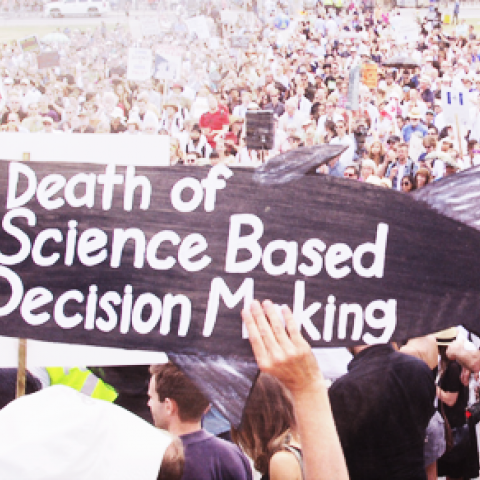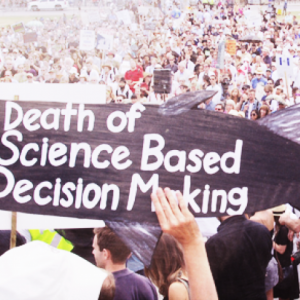
5 signs your Prime Minister doesn’t like public servants
Stephen Harper wants public servants to know he cares. That’s the point of this week’s National Public Service Week to celebrate those “Proudly Serving Canadians.“ But public servants aren’t buying it. In fact, they’re boycotting the whole thing. Here are five things that put the boycott in context. 1. Job cuts = cuts to services Since 2010, Harper’s Conservatives have axed 19,000 […]
Stephen Harper wants public servants to know he cares.
That’s the point of this week’s National Public Service Week to celebrate those “Proudly Serving Canadians.“
But public servants aren’t buying it. In fact, they’re boycotting the whole thing.
Here are five things that put the boycott in context.
1. Job cuts = cuts to services
Since 2010, Harper’s Conservatives have axed 19,000 public sector jobs and another 8,900 more are on the way.
These layoffs come at a steep price in the form of front line cuts to services Canadians rely on:
- Veterans Affairs: Laying off 25% of Veterans Affairs staff and shutting down nine Veterans Affairs offices has made it harder for Canada’s veterans to get services they need, posing problems especially for younger veterans suffering from PTSD and elderly veterans.
- Food Safety: The Conservatives are planning to cut one out of every five workers at the Canadian Food Inspection agency by 2017. Many of these jobs were added in response to a 2008 listeriosis outbreak at a Maple Leaf foods plant that killed 23 people.
- Search and rescue: The closure of stations in Vancouver and St. John’s has increased emergency response times and jeopardized the safety of Canadians on the western and the eastern seaboard.
- Statistics Canada: After gutting one-fifth of its staff, the agency is now reporting gaps in data, including measuring unemployment.
- Fisheries and Oceans: Hundreds of jobs relating to everything from the Coast Guard to researchers keeping an eye on the effects of industrial pollution on waterways have been eliminated.
2. Muzzling government scientists
Since coming into office, the Conservatives have prevented government experts from speaking to the public about their work. And all messaging goes through “a spin machine,” according to scientists who blew the whistle as part of the special investigation by the CBC’s The Fifth Estate.
This sentiment is backed up in a survey of federal scientists commissioned last year by the Professional Institute of the Public Service of Canada:
- 24% say they’ve been directly asked to exclude or alter information for non-scientific reasons.
- 48% say they’re aware of cases where their department or agency has “suppressed or declined to release information,” leading to “incomplete, inaccurate, or misleading impressions.”
- 50% say they are aware of “cases where the health and safety of Canadians” or environmental sustainability has been compromised because of political interference in their scientific work.
- 86% say they don’t feel they could share their work with the public without fear of censure or retaliation from their department.
- 90% say they don’t feel like they can speak freely to the media about the scientific work they do.
3. Gutting collective bargaining rights
Despite claiming they’re trying to “modernize” the collective bargaining process by giving the employer exclusive (and arbitrary) power to declare everything an “essential service,” this would actually have the effect of rendering worker’s rights to strike completely “meaningless.”
4. Ideology-based policy making
Between cutting the long-form census and cherry-picking opinions from ideologically aligned experts, the Conservatives rely on ideology over evidence to craft public policy and develop social policy.
This is how the ‘Evidence vs. Ideology in Canadian Public Policy’ forum organised by PIPSC summed it up: “Policy-making rooted in facts seems disturbingly out of favour on Parliament Hill these days.”
5. Scapegoating public servants for their own screw ups
The list of public servants who’ve been attacked, punished, muzzled or fired by the Harper government keeps getting longer.
Rather than admit a mistake or fix a problem, the Harper playbook is to blame bureaucrats. The list includes:
- Supreme Court Justice Beverley McLachlin (Harper accused her of acting “inappropriately” after his pick for the Supreme Court was rejected, triggering universal calls for Harper to tone it down and check himself)
- Parliamentary Budget Officer Kevin Page (being a “persistent thorn in the side of the governing Tories”)
- Elections Canada Chief Marc Mayrand (he thought the Unfair Elections Act made no sense)
- Auditor General Sheila Fraser (she concurred with Mayrand and one-upped him by calling it “an attack on our democracy”)
- Veterans Ombudsman Pat Stogran (pushed back against Harper’s “insurance company mentality” of running Veterans Affairs)
- Chief Statistician of Canada Munir Sheikh (wouldn’t put his name behind unreliable data after long-form census got axed)
- RCMP Chief Supt. Marty Cheliak (thought keeping the long-gun registry was a good idea)
- RCMP Complaints Commissioner Paul Kennedy (filed a report on a man killed after being tasered)
- Canadian Wheat Board President Adrian Measner (criticized dismantling the Wheat Board)
- Foreign Service Officer Richard Colvin (blew the whistle on the torture of Afghan detainees)
- Military Police Complaints Commission Chairman Peter Tinsley (spoke out about the torture of Afghan detainees)
- Nuclear Safety Commission President Linda Keen (fired hours before she was set to testify about the threat of a “national and international health crisis” due to the shutdown of a medical isotope producing nuclear reactor)
Photo: jennfarr. Used under a Creative Commons BY-NC-SA 2.0 licence.
Our journalism is powered by readers like you.
We’re an award-winning non-profit news organization that covers topics like social and economic inequality, big business and labour, and right-wing extremism.
Help us build so we can bring to light stories that don’t get the attention they deserve from Canada’s big corporate media outlets.
Donate



